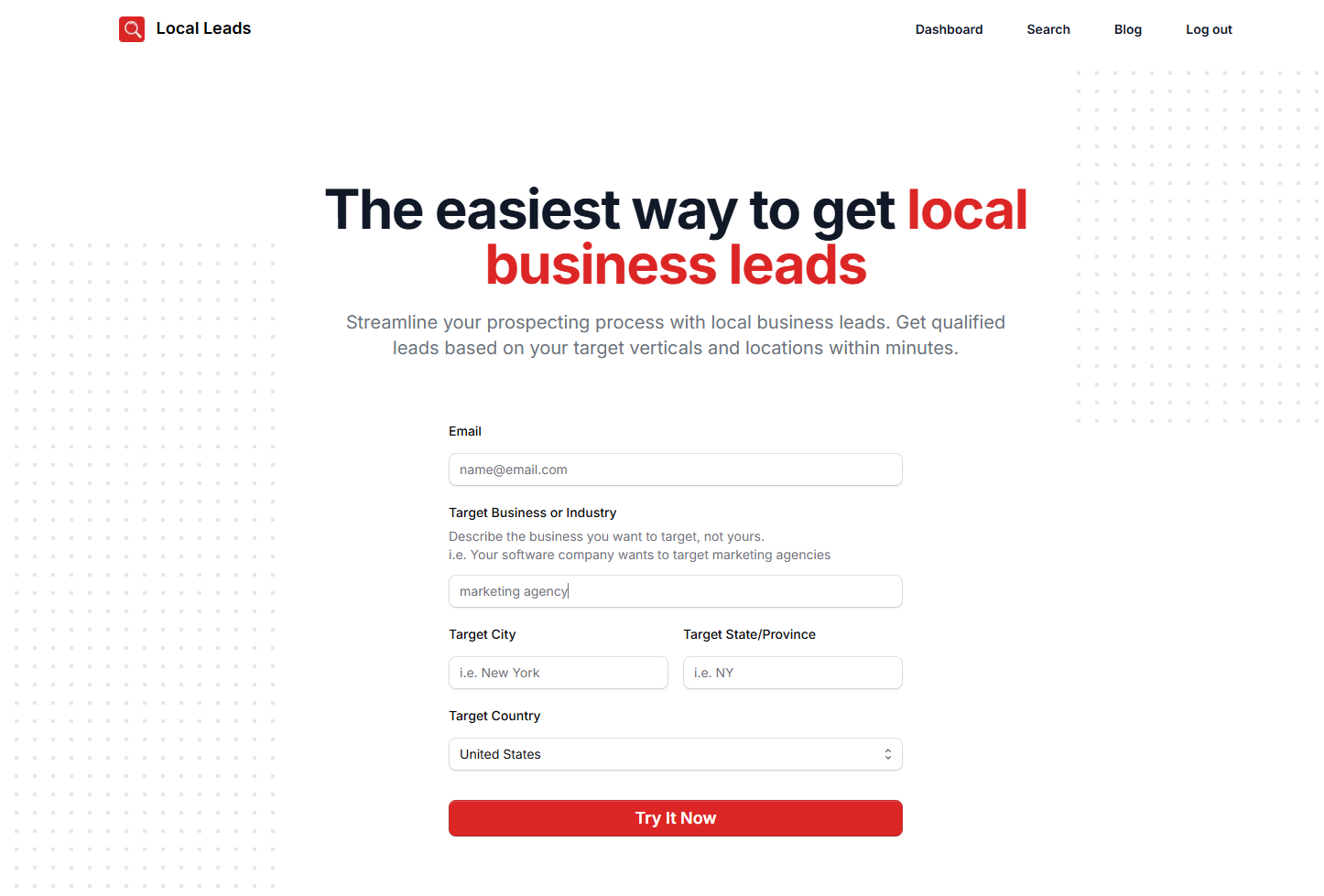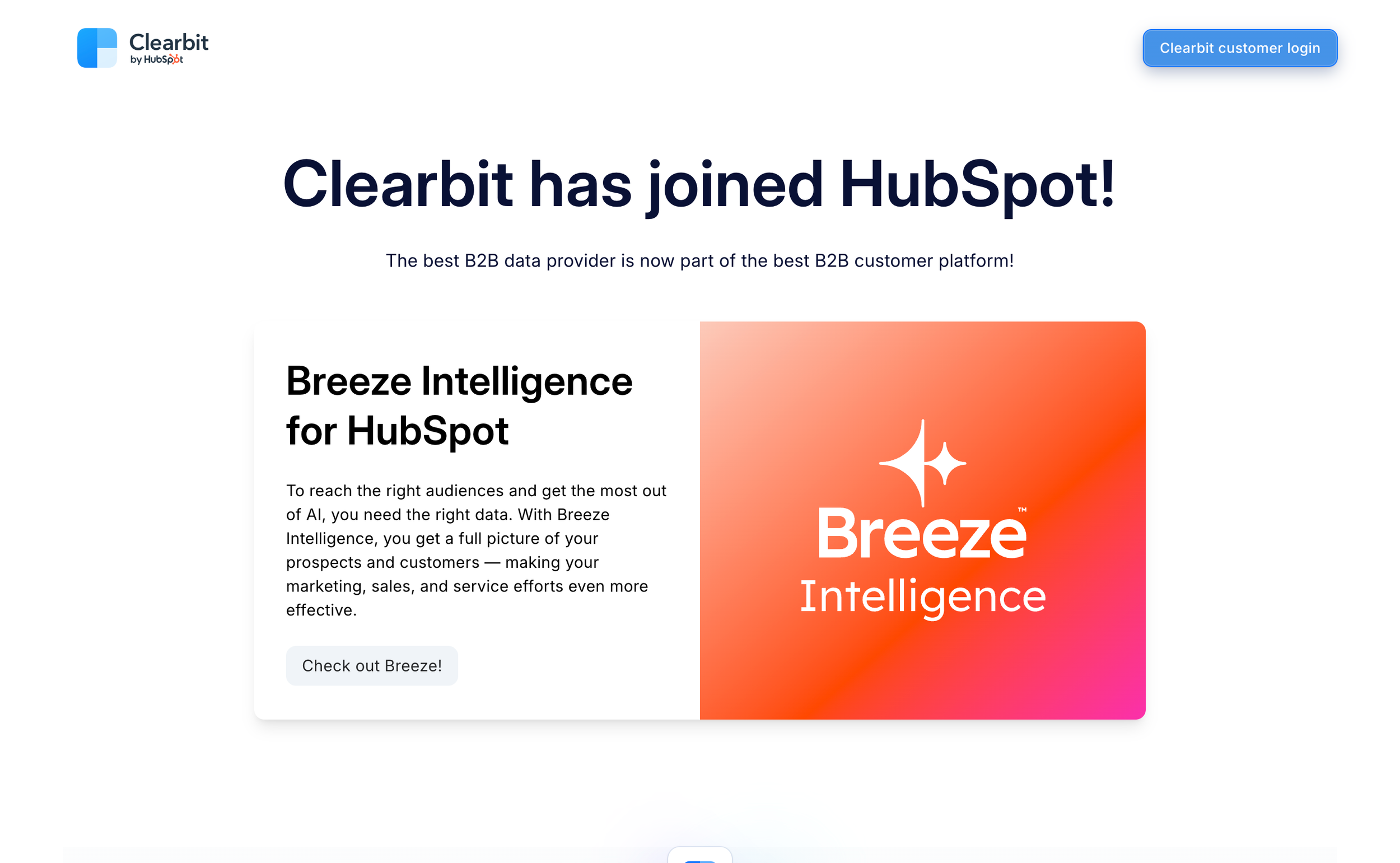Top B2B Prospecting Tools to Boost Sales in 2025 (Affordable & Effective)
In this guide, we’ll look at the best affordable B2B prospecting tools for 2025. If you work in sales or marketing, this guide will help you choose the right tools. Many sales prospecting tools can collect useful data about prospects and companies, but picking the best ones can be challenging. Let’s dive in to discover the best options.
Sales tools help with different stages of the sales process. Some are great for finding new leads, while others are better at evaluating and ranking lead quality. Some prospecting tools work like customer relationship management tools (CRMs) by finding leads and managing the entire sales process.
We’ll mainly focus on sales prospecting apps. When assessing these tools, consider your sales strategy.
Sales Strategies
There are two main approaches:
Low Market Capacity:
If you’re in a small market, you have to be smart about who you reach out to. Pick your leads carefully and know when to follow up or walk away. In this case, automation might not be the best fit. Instead, focus on high-value opportunities and building meaningful relationships.High Market Capacity (Game of Numbers):
Most sales professionals fall into this category. Here, success is about reaching the right prospects to increase conversion and revenue. Automation tools can greatly improve your outreach efforts efficiently.
Below, we’ve put together a list of the top five affordable B2B prospecting apps for 2025.
Best B2B Prospecting Tools
Let’s take a look at the top affordable B2B prospecting tools for 2025.
Local Leads
Apollo
ZoomInfo
Lusha
Hunter.io
Seamless.AI
AeroLeads
Pipedrive
Clearbit
Salesloft
Comparison Tool Chart
Local Leads
Comprehensive B2B Prospecting Across Multiple Sources
Local Leads is our favorite affordable B2B prospecting tool. It addresses two major challenges in B2B prospecting: finding companies to target and getting contact information. You can input your target industry and location, then add disqualifiers to refine your list. What sets Local Leads apart is its data sourcing. Unlike many tools that rely only on LinkedIn, it pulls data from multiple sources to build lists and find contact details that are fresh and accurate, giving you more reliable leads.
It might not sound like a big deal, but most tools only use LinkedIn. That’s a problem if your buyers don’t use LinkedIn much or don’t keep their info up to date. Local Leads helps you avoid those dead ends and reach the right people faster.
Each search gives you a long list of leads with detailed information, including the company name, address, website, emails, and phone numbers. You’ll also get their LinkedIn profile, company type and subtype, company size, Google rating and number of reviews, Google verification status, year founded, and number of LinkedIn followers.
Local Leads Pros and Cons:
Pros
Generates large lists of leads based on your criteria.
Uses multiple sources to ensure broad coverage and avoid missing out on prospects based on the platforms they are using.
Combines lead lists with contact details for a smoother process.
Cons
You still have to manually select the industries you want to target.
Local Leads Pricing
Starter: $49/month – Get 50 full lead lists
Growth: $99/month – 150 full searches
Custom/Enterprise plans are available for teams
You can also try this one for free first
Apollo
Streamlined Email Prospecting with Real-Time Data
Apollo is a tool designed to simplify email prospecting by automatically retrieving email addresses while you browse LinkedIn profiles or company websites. While this feature is useful, it still requires users to handle a significant portion of the manual prospecting process, such as identifying the right target, pinpointing the correct website, and selecting the appropriate contact.
Apollo Pros and Cons:
Pros:
Provides accurate and custom email addresses when available, along with an accuracy rating for confidence in outreach.
Cons:
Hard to scale. You have to do a lot of the work yourself, like finding each lead by hand.
The app's per-user pricing model can be costly for larger teams or organizations.
Apollo Pricing:
Basic: $49/user/month
Professional: $79/user/month (billed annually)
Organization: $119/user/month (min. 3 users, billed annually)
Zoom Info
Extensive B2B Data Platform with Built-In CRM Features
ZoomInfo is packed with tools for sales, marketing, and CRM. But its biggest strength is its huge database of contacts that lots of businesses rely on.
Zoom Info Pros and Cons:
Pros:
Access to an extensive database make it easy to find customer information that may be difficult or impossible to locate elsewhere.
Cons:
Data quality relies heavily on ZoomInfo's user base, which can create gaps may if your target customers are not part of their ecosystem.
This B2B prospecting tool is priced significantly higher compared to other sales prospecting applications, which may limit accessibility
Zoom Info Pricing:
You’ll need to fill out a form or contact them to get pricing from ZoomInfo
Average cost is reported to be around $250 per user per month
Pricing can vary based on your business needs. For exact costs, contact ZoomInfo’s sales team for a custom quote
Lusha
Targeted Prospecting with LinkedIn Integration
Lusha, like many other B2B lead generation software, relies heavily on LinkedIn for its data. Users can create targeted lists based on various filters such as industry, size, technology use, and more. Similar to Apollo, it retrieves custom email addresses directly from LinkedIn profiles.
Lusha Pros and Cons:
Pros:
Effective for generating leads based on specific criteria and combines lists with contact information.
Cons:
Relies on LinkedIn for both list creation and email retrieval, which limits its effectiveness if your prospects are not active or well-represented on LinkedIn.
Lusha Pricing:
Free: 50 credits/month (1 email = 1 credit, 1 phone = 5 credits)
Premium: $22.45/month (3,600 credits/year, billed annually)
Hunter.io
Efficient Email Discovery for Known Targets
Description:
Hunter.io is a B2B prospecting tool similar to Apollo, designed to help you find contact information by entering a company, domain, or individual’s name. It excels at locating and verifying email addresses, making it especially useful when you already know the company or individual you're trying to reach but can't locate their email address.
Hunter.io Pros and Cons:
Pros:
An effective solution for finding and verifying email addresses when you know your target, helping improve outreach accuracy and response rates.
Cons:
This B2B prospecting tool is less effective if you don't already have a clear list of target prospects because it doesn’t help find new leads.
Generating a full list of target prospects can be hard, which makes it difficult to scale up your prospecting.
Hunter IO Pricing:
Starter: $49/month
Growth: $149/month
Scale: $299/month
Seamless.AI
Smart B2B Prospecting with Real-Time Data
Description:
Seamless.AI is a B2B prospecting tool to find the right customers. It uses AI to find emails and phone numbers fast and checks that they’re real. You can download the Chrome extension to collect data from any website, and its filters help you organize leads into lists for better targeting.
Seamless.AI Pros and Cons:
Pros:
Automates lead generation and data collection
Integrates with platforms like Salesforce and HubSpot
Cons:
Reports of inconsistent data quality and high bounce rates
Cancellation and billing processes can be unclear or difficult to navigate
Seamless AI Pricing:
Basic: $147/month for 250 credits
Pro & Enterprise: Custom pricing available
Free plan available with limited credits
AeroLeads
Simple, Budget-Friendly B2B Prospecting
AeroLeads is a simple B2B prospecting tool for finding contact info fast. You can use its Chrome extension to collect data from websites like LinkedIn and Crunchbase. Then it adds emails, job titles, and company details for you. It also connects easily with CRMs to help you manage prospects smoothly.
AeroLeads Pros and Cons:
Pros:
Low-cost plans are great for small teams
Easy to use and export to your CRM
Cons:
The user interface is outdated and may affect user experience
Limited filtering options and occasional issues with data reliability
AerloLeads Pricing:
Take Off: $49/month for 2,000 credits
Climb: $149/month for 8,000 credits
Cruise: $499/month for 30,000 credits
Enterprise: Custom pricing
Pipedrive
CRM with Built-In B2B Prospecting Tools
Pipedrive is a CRM that includes helpful B2B prospecting features. It has visual sales pipelines, lead scoring, and automation that make it easier to stay organized. Even though it’s mainly a CRM, its built-in tools can support your early-stage sales efforts.
Pipedrive Pros and Cons:
Pros:
Clean design that’s easy to use on any device
Includes helpful automation and forecasting features
Cons:
Marketing automation features are limited compared to specialized tools
Piprdrive Pricing:
Starts at $14/user/month (Essential)
Up to $99/user/month (Enterprise)
Clearbit
Fast and Accurate B2B Prospecting Data
Clearbit is made for fast, accurate B2B prospecting. It pulls data from over 200 million contacts and lets you filter by job title, industry, company size, and more. It also integrates well with CRMs like Salesforce, so that you can keep your outreach focused and efficient.
Clearbit Pros and Cons:
Pros:
Builds targeted lead lists quickly
Clean interface and great CRM integrations
Cons:
Some contact data, such as job titles and emails, may be outdated or incorrect
Pricing is not listed publicly and requires speaking with a sales representative
Clearbit Pricing:
Starts at $45/month for 100 credits (billed annually)
Larger plans may run $450 to $4,500 depending on needs
Salesloft
Outreach Automation for Scalable B2B Prospecting
Salesloft is more than just a B2B prospecting tool. It helps sales teams automate their outreach with personalized email and call sequences. You also get detailed performance tracking so you can see what works and improve over time.
Salesloft Pros and Cons:
Pros:
Strong tools for email and phone outreach
Great analytics to track your results
Cons:
The sales prospecting platform has a steeper learning curve, especially for new users
Higher cost compared to basic B2B prospecting tools, which may not suit all budgets
Salesloft Pricing:
Not publicly listed
Custom pricing, contact sales for a quote
Save Time & Automate Where You Can
No matter what sales prospecting tool you pick, the most important thing is that you’re prospecting. Small businesses typically let prospecting be the first thing to fall off their task list. By leaning into some affordable B2B sales prospecting tools and automation, you can take a cumbersome task down to just an hour or two per week. Looking to level up your marketing approach? This guide on strategies for B2B marketing shows how to align tools like these with real business growth.
Once you’ve got leads coming in, make sure your website and sales process are ready to convert them. A common issue we see is businesses getting traffic but no sales.
If you need help identifying the right technical option for you, feel free to reach out to us for all sales and marketing questions: Contact us
Sales Prospecting FAQs
-
Sales prospecting means finding and reaching out to people who might want to buy from you. It includes looking for leads, checking if they’re a good fit, and contacting them. It’s a key part of B2B prospecting.
-
A sales prospecting tool helps you find and contact the right leads. It gives you contact info and automates boring tasks. This saves time and helps with B2B prospecting.
-
Prospecting helps you find new customers. Without it, it’s hard to hit sales goals or grow. New leads keep your business moving. This is even more important in B2B prospecting, where deals take longer.
-
Prospecting tools save time. They help you find leads, sort them, and get contact info fast. Tools like Local Leads, ZoomInfo, and Lusha do the hard work for you. This helps you focus on closing deals. They’re super helpful for B2B prospecting.
-
You can get better by learning about your leads, sending custom messages, and following up. Also, using the right tools, such as Local Leads and Apollo.
-
B2B prospecting (short for business-to-business prospecting) is the process of finding and reaching out to other businesses that might be interested in your product or service. Instead of selling to individual consumers, you're connecting with companies, decision-makers, or teams.











